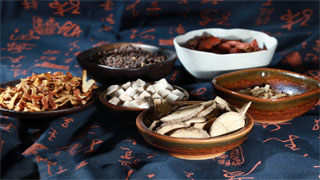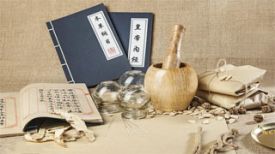
Sun Simiao discussed the concept of Sheng Mai Yin in his "Qian Jin Fang": "Pulse is the way of blood, and when Qi is obtained, it becomes full, while when Qi is lost, it becomes weak. This formula supplements Qi to make the blood channel full, and when Qi is restored, it is called Sheng Mai Yin." Therefore, it can be inferred that Sheng Mai Yin is a medicine for tonifying Qi. The concept of "pulse" in traditional Chinese medicine is not simply referring to veins in Western medicine, but rather an intangible channel for the circulation of qi and blood. This channel not only relies on blood filling, but also needs to have qi, which is functional blood.
A patient was once hospitalized due to cerebral thrombosis, and their blood pressure was extremely low upon admission, which could exacerbate thrombosis. When the disease occurs, the face is haggard and extremely weak. In traditional Chinese medicine hospitals, the attending physician quickly prescribes "Shengmai Injection" (the intravenous infusion dosage form of Shengmai Drink). Soon, the patient's mental state improved and their face regained vitality. This example deeply comprehends what Sun Simiao said, "When you gain qi, you are full.". Traditional Chinese medicine (TCM) aims to enhance human function, especially heart and lung function, and restore pulse energy, not just mechanically filling veins with liquid.Sweating profusely can cause sadness. There was once a retired teacher who sweated profusely in summer and continued to fall. He was exhausted, panting and sweating even more when he moved a little. The diagnosis in traditional Chinese medicine is that sweating depletes the heart qi, which belongs to the category of heart lung qi deficiency. Traditional Chinese medicine believes that "sweat is the fluid of the heart," which suggests that excessive sweating can damage the heart qi. This retired teacher's asthma does not originate from the lungs, but from impaired heart function. Sweating is actually dehydration, and its harm lies in the loss of water that can take away electrolytes from the blood, affecting electrolyte balance and directly affecting blood quality. The normal movement of human nerves and muscles relies on electrolytes in the blood. Excessive sweating leads to electrolyte imbalance, primarily affecting the nerves and muscles, which in turn become unresponsive, known as Qi deficiency in traditional Chinese medicine.
Another patient had a high fever after taking a hot shower with cold water, sweating profusely to reduce fever, but collapsed to the ground. The young on duty doctor suspected spinal cord problems, while the on duty director determined it to be "hypokalemia". After examination, the blood potassium level was far below normal. Intravenous potassium supplementation quickly resolves symptoms. Potassium is an essential trace element for the human body, and although it is trace, it is related to life and death. For example, some people experience dehydration and potassium deficiency due to diarrhea, and suddenly collapse while crossing the road. Potassium can enhance the excitability of human nerves and muscles, maintaining their normal function. When potassium is sufficient, people become strong, while when potassium is lacking, muscle soreness, relaxation, and even paralysis may occur, especially in the lower limbs, known as "potassium deficient paralysis.". In severe cases, it can also affect the respiratory muscles and myocardium, causing respiratory muscle paralysis, breathing difficulties, and severe arrhythmia. However, as long as timely detection, clear diagnosis, simple treatment, intravenous potassium supplementation is sufficient.
As the saying goes, "blood and sweat are of the same origin." The Ling Shu also says, "Those who take blood should not sweat, and those who take sweat should not blood." It emphasizes that those who bleed should avoid sweating, and those who sweat excessively should avoid bleeding. Sweating and blood can take away energy and potassium from the body, making people weak and unable to suffer dual losses. If sweating or diarrhea leads to dehydration, even if it does not reach the level of paralysis, people will still feel weak. Children are more dangerous and may be life-threatening due to dehydration. If you are looking for quick results at this time, you can take oral rehydration salts, which are available in pharmacies and contain key electrolytes such as potassium, sodium, and glucose. They can quickly change your fatigue state, and then you can use traditional Chinese medicine to recuperate according to your constitution. At the same time, it is not advisable to drink too much plain water or sugar water immediately after sweating a lot. It is advisable to drink fruit juice or sugar salt water, especially orange juice, which replenishes potassium the fastest. Tea contains potassium, and drinking tea in summer can prevent sweating and low blood potassium. Bananas are also rich in potassium. When the situation stabilizes, one should take Shengmai Drink to replenish the lost energy from sweating, otherwise the body is prone to weakness.
Shengmai Yin is the only tonic that can be taken in summer. A retired teacher may lose blood potassium due to excessive sweating. If they take Shengmai Drink at the beginning of summer, it may be avoided. Shengmai Drink is composed of ginseng, Ophiopogon japonicus, and Schisandra chinensis. Ginseng nourishes qi, Ophiopogon japonicus nourishes yin, and Schisandra has a sour taste, which can converge dissipated heart qi and achieve "opening up sources and reducing costs". Sun Simiao particularly recommended using Schisandra chinensis to nourish the heart qi in May in his book "Preparation of Urgent Thousand Gold Prescriptions", as May belongs to fire and heart, and the heart qi is easily dissipated. Don't be fooled by the fact that this prescription only contains three ingredients, its extracted intravenous injection can treat shock.
Many people believe that they should not take tonics in summer because it can cause excessive heat, but this viewpoint is not entirely correct. The complete view of the nourishing season is "nourishing yang in spring and summer, and nourishing yin in autumn and winter.". It is advisable to take Qi tonifying drugs in spring and summer, and blood and Yin tonifying drugs in autumn and winter. Because blood tonic drugs are too rich, such as ass hide glue, cooked rehmannia, etc. Those with poor appetite should not take it casually even in autumn and winter, at least their tongue coating should be clean; If the tongue coating is thick, it is necessary to first take Erchen Pills to regulate the gastrointestinal tract and improve digestion, otherwise it is difficult to absorb.
Autumn is the season of sealing and storing, with Yang energy stored within the body. Yang energy is mainly present in the body, so autumn and winter are prone to catching colds, and appetite is better because Yang energy helps digestion. At this point, you can start taking blood and yin tonifying drugs, such as irrigation during the dormant period of trees, to replenish your physical strength through the accumulation of yang energy. In the spring and summer of the following year, the body's qi and blood gather on the surface, leaving the body empty. In the summer, there are fewer colds but a poor appetite, making it easy to suffer from "bitter summer" and diarrhea and enteritis. Due to insufficient internal qi and blood, it is difficult to digest food. At this time, Qi and blood are easily dissipated, and summer nourishment is crucial. Shengmai Yin is the only suitable tonic that should be taken in summer. Especially for those with Qi deficiency constitution, sweating in summer, being afraid of wind and catching a cold in winter, or common female arrhythmias such as "sinus arrhythmias" and "conduction block", their body is extremely weak after onset, which is a typical Qi deficiency. Qi deficiency and arrhythmia interact with each other to form a vicious cycle. At this time, Shengmai Yin can replenish qi, calm the heart, and break the cycle.
For people with qi deficiency, excessive sweating, fatigue, and weakness, it is often necessary to take Shengmai Yin and Yuping Feng San (oral liquid). Drinking in hot summer or after work to replenish qi and blood; Yupingfeng Oral Liquid should be taken before the beginning of autumn, because after autumn, the pores of the human body gradually close to prevent cold and evil. At this time, it is safer to set up a "screen". Yuping Fengsan is composed of Astragalus membranaceus, Atractylodes macrocephala, and Fangfeng. The first two supplement the qi of the spleen and lungs, prevent wind and resist wind evil, assist those who are prone to colds or have deficiency in surface qi, and set up a "screen" on the body surface to prevent excessive sweating, maintain yang qi, and improve immunity. When dealing with infectious diseases such as influenza, for those who frequently catch a cold, the value of Yupingfeng is higher than that of general vaccines or antiviral drugs.
Homemade Shengmai Drink can have different "ginseng" options. There are many "ginseng" in traditional Chinese medicine, and the ones that truly nourish qi include ginseng, American ginseng, Codonopsis pilosula, and Taizi ginseng. Ginseng has a strong qi tonifying effect, but there are contraindications. It is dangerous to take it in patients with obvious heat symptoms, yin deficiency, or both qi and yin deficiency, as it can easily harm yin. Sheng Mai Yin often uses ginseng. If the heat is significant, such as a red and thin tongue, it is advisable to make Sheng Mai Yin by yourself. Use 10 grams of Western ginseng, Ophiopogon japonicus, and Schisandra chinensis decoction each. American ginseng has a peaceful nature, balancing qi and yin, and can clear deficiency fire. It is also suitable in summer. American ginseng can be divided into flakes and whole ginseng. The flakes can be brewed with boiling water and chewed after being tasteless; The whole ginseng should be steamed in separate water, with water added to the bowl. In a steamer, add water and steam until soft. Drink the ginseng water first, then brew and chew. When brewing or steaming, the container should be covered to prevent the volatilization of ingredients and maintain efficacy. Taizi ginseng can nourish qi and produce fluids, balancing yin and yang. It is a knockoff version of Western ginseng, with weaker strength but lower price. When making a homemade Shengmai drink, the dosage can be increased, including 30g of Taizi ginseng, 15g of Ophiopogon japonicus, and 10g of Schisandra chinensis.
Usage of Shengmai Drink: The oral liquid is quickly absorbed, and is taken 2-3 times a day, with 1 tablet per time, before meals. If there is obvious physical weakness, the dosage can be increased to 2 at a time. In traditional Chinese medicine, there is a saying that "radish is opposite to ginseng". Carrots break through qi and eliminate stagnation. Those with qi deficiency should eat less radish when consuming them, which can weaken the vitality of the body. Therefore, those who take Shengmai Yin should consume less radish.
The content of the article is for clinical reference only. Non professionals in traditional Chinese medicine are not allowed to try medication.


